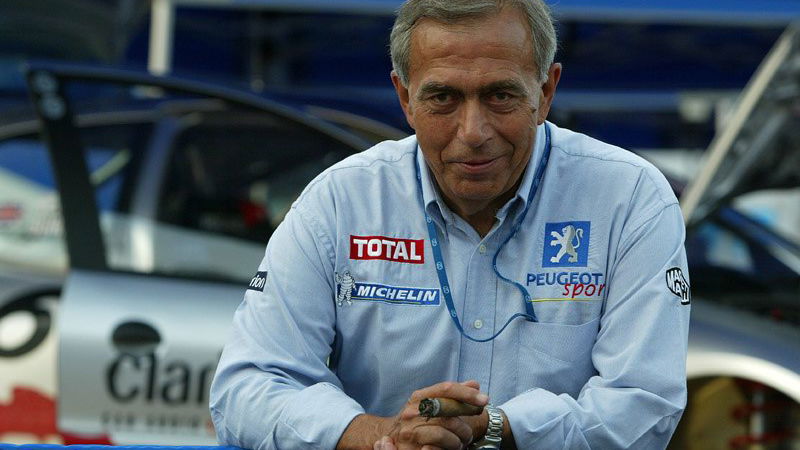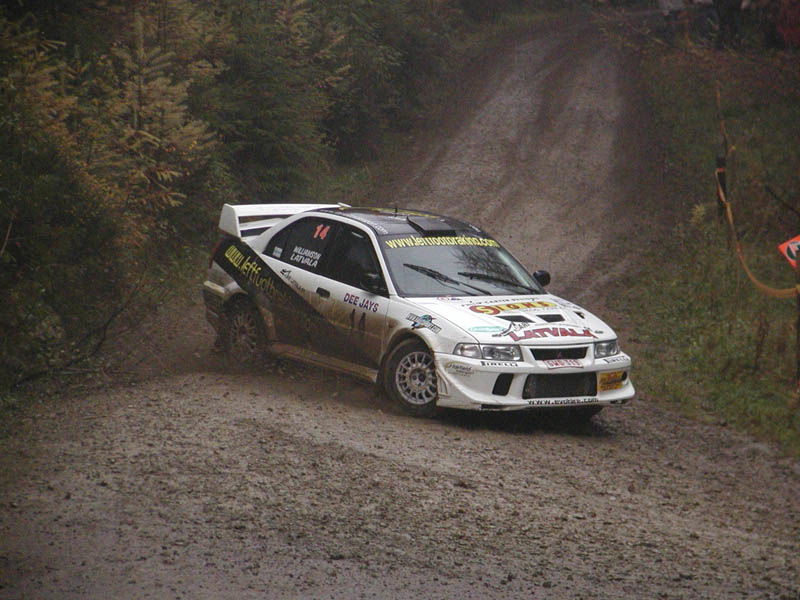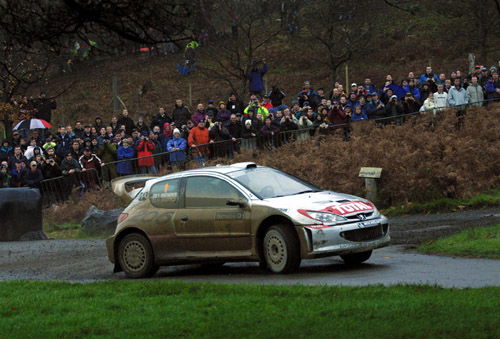Q&A: Corrado Provera.
Despite having sewn up both the Manufacturers' and Drivers' World Championships in New Zealand, Peugeot kept the pressure well and truly on in Australia to notch up its eighth one-two result of the season. Corrado Provera analyses his team's voracious appetite for victory.
Q:
Corrado [Provera]. How does Peugeot Sport succeed in keeping up its motivation with both this year's world titles already in its pocket?

Despite having sewn up both the Manufacturers' and Drivers' World Championships in New Zealand, Peugeot kept the pressure well and truly on in Australia to notch up its eighth one-two result of the season. Corrado Provera analyses his team's voracious appetite for victory.
Q:
Corrado [Provera]. How does Peugeot Sport succeed in keeping up its motivation with both this year's world titles already in its pocket?
Corrado Provera:
Our motivation has always been boosted naturally by our success. The way our mechanics exulted in New Zealand after beating their record for a gearbox change on Harri Rovanper?'s car is a perfect example of this and was a very moving moment. There is no question of us resting on our laurels. It is important for Peugeot that we win on all the types of terrain the championship has to offer, from both the commercial and competition viewpoints, the role of the latter being to enhance the image of our marque in the eyes of our customers.
Q:
You were well served then by Marcus Gronholm's third consecutive win in Australia...
CP:
We know that our success in competition does not have a direct influence on sales, which are essentially a function of the quality of our products. Even so, competition is very important in terms of image. The manager of Peugeot Australia, Frederic Banzet, recently confirmed to me the positive effect our results have had in his and neighbouring markets, especially amongst the younger clientele.
Q:
More often than not, your wins have also been one-two finishes. How do you explain this degree of success?
CP:
I would say chiefly through the permanent will to win shared by everyone in the team which today functions as a remarkably well-knit entity. You know, we weren't perfect in Australia. Richard Burns had a clutch problem that put paid to the anticipated duel with Marcus Gronholm, but there was plenty of suspense thanks to the tremendous fight back of Harri Rovanper? who we urged to give it everything he had. He brought us our eighth one-two finish of the season and this 'icing on the cake' was a source of immense joy for us.
Q:
Do you believe it is possible that your current domination is, as some people claim, bad for rallying's image?
CP:
Over the years, other makes have found themselves in a similar situation to ours, yet that hasn't stopped rallying becoming more popular than ever. Sport can never be a ding-dong battle all the time. It is in essence a straight fight between rivals who respect the same regulations. We do not cheat and, despite what some may suggest, our budget is not vastly superior to that of the other teams. We simply use the funds that we are allocated in the most effective manner possible. We did not come into rallying by attracting top names from other teams. Gilles Panizzi was already part of the family and it's Jean-Pierre Nicolas who spotted the potential of Marcus Gronholm who has since become the champion we know. Since then, we strengthened our squad with the likes of Harri Rovanpera and Richard Burns who - OK - had just won the world title. Globally, however, the team has learnt and progressed together.
Q:
Even so, success came very quickly. How do you explain the short duration of your apprenticeship?
CP:
It is certainly because we had sized up the difficulty that lay ahead fairly accurately from the outset and correctly evaluated the effort and ingredients needed if we were to be competitive. That didn't stop us going through some tough moments that led some to laugh at our expense, but we built on the sum of these occasionally disastrous moments to produce a stronger team. In 2000 and 2001, we won the championship despite making a lot of mistakes, although we doubtlessly made fewer than our rivals. Each time, we have bounced back stronger. We are deeply, and I believe legitimately, proud of the level we have achieved today, but we are careful not to underestimate the opposition.
Q:
So you don't see yourself as unbeatable...
CP:
Absolutely not, especially since the more you win, the closer you get to defeat. Those who are concerned for the future of rallying need not worry; our rivals merit the greatest respect. And even though they might occasionally suggest that they are unable to keep up with us, we know that's not the case. The rules are the same for everyone and they are particularly well drawn up. They are fair and everyone has an equal chance. That, however, doesn't mean we intend drawing any punches. We are in rallying for a long time and we are in it to win. We will continue to work because we know perfectly well that the championship won't be so easy next year.
Q:
In the more immediate future, the big match everyone is anticipating between Marcus Gronholm and Richard Burns in Great Britain should be a great show...
CP:
We sincerely hope so, and I wouldn't want to leave Harri Rovanpera out of the equation. As in Australia, all three drivers will be free to play it as they feel. In fact that has been the rule within the team throughout the season, as we announced prior to the Monte Carlo Rally. Last year we had to issue team orders in Finland to calm Harri and Marcus down, but that was because at that precise moment it was imperative both drivers scored as many points as possible for Peugeot. The FIA ruling authorising the nomination of three drivers eligible to score points has removed that thorn from our side. It is easier for everyone and ideal for the sport.

